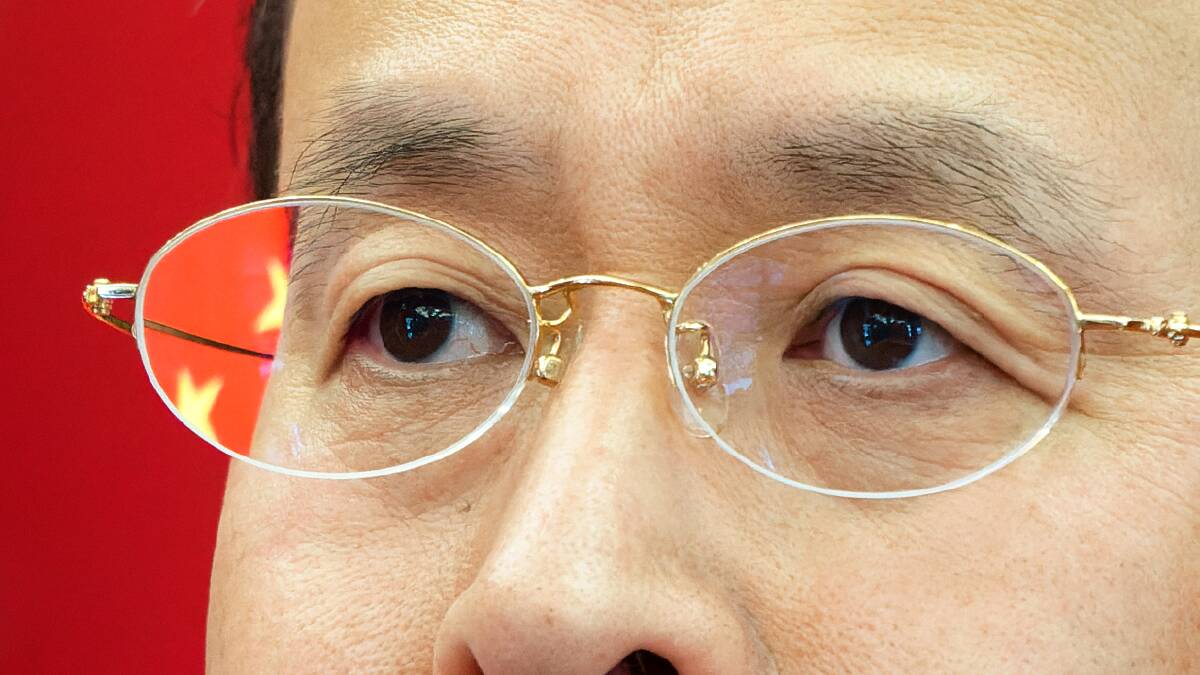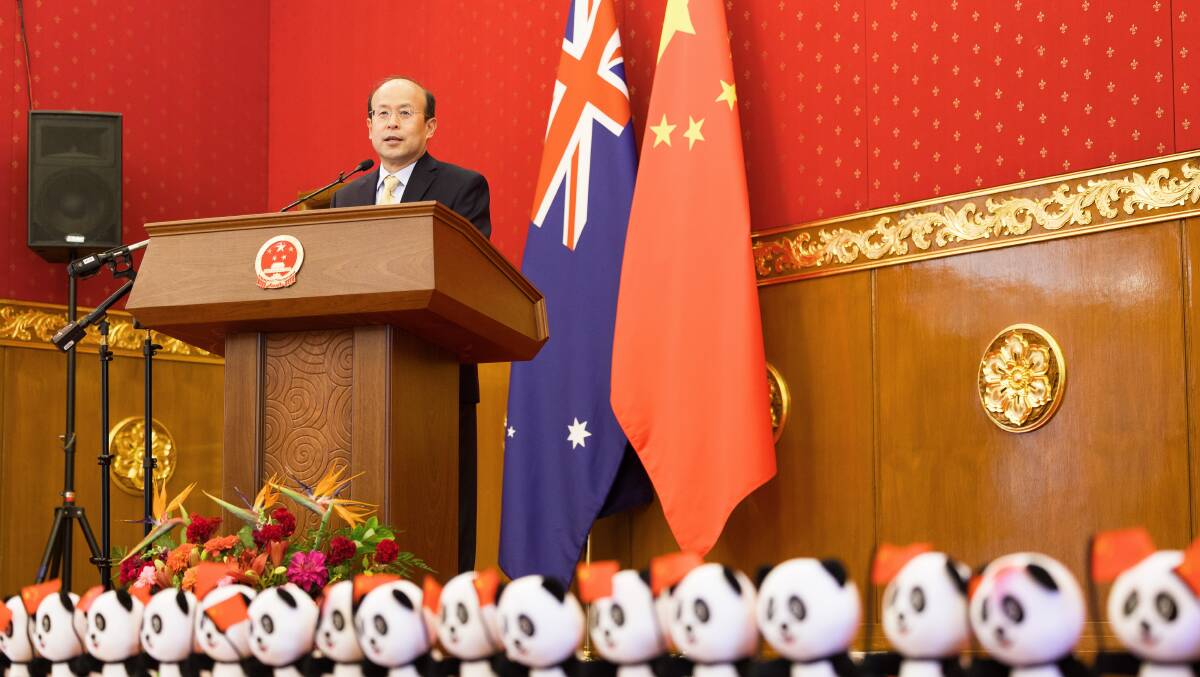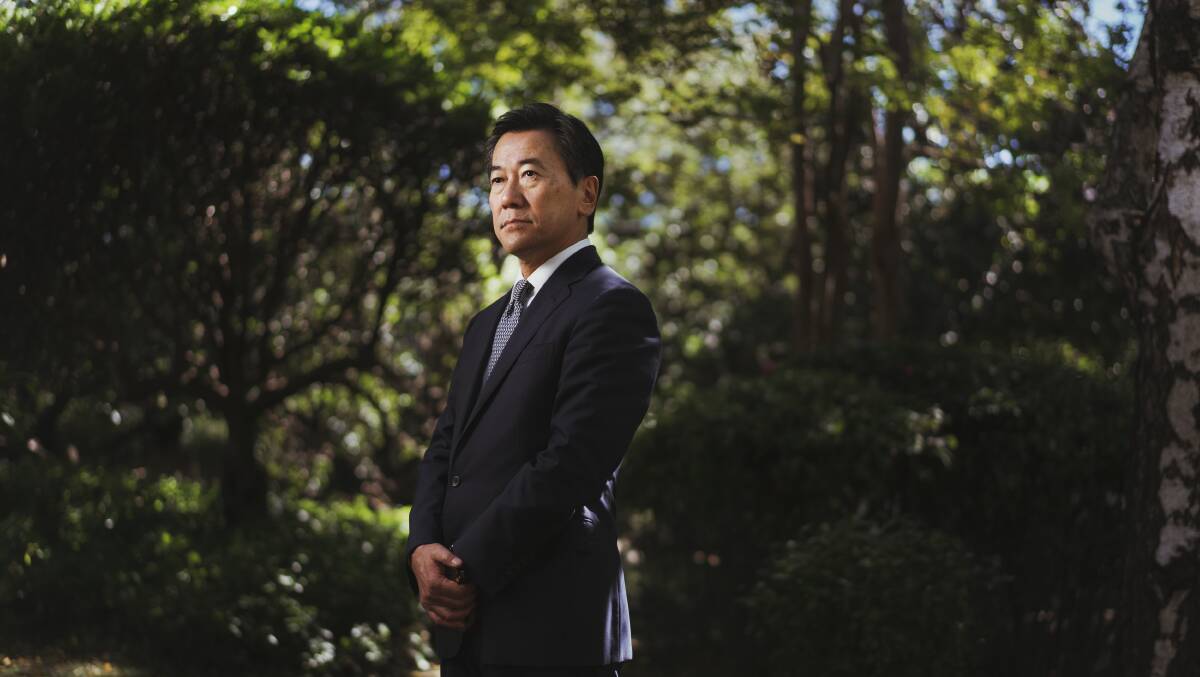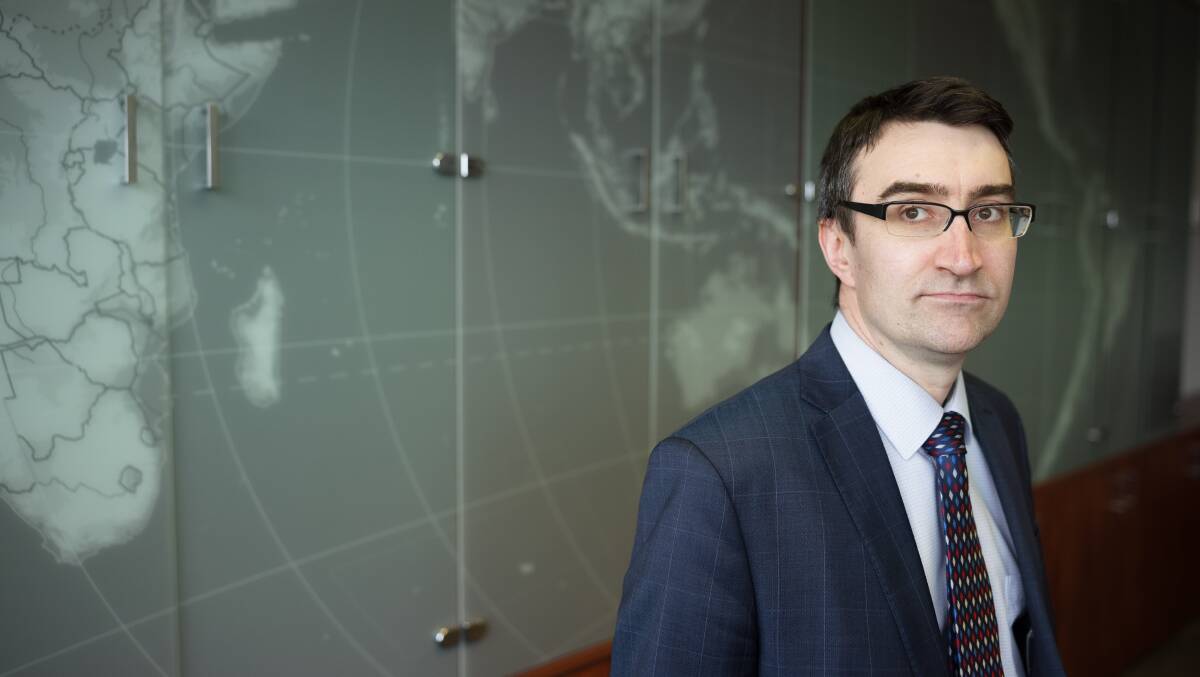
In China's ornate embassy in leafy Yarralumla, its top diplomat in Australia set out on a mission.
Subscribe now for unlimited access.
$0/
(min cost $0)
or signup to continue reading
Building on the positive momentum between Australia and China in recent months, Ambassador Xiao Qian saw an opportunity to bring in the new year on a high note.
Smiling plush toy pandas lined the stage within the embassy's main reception hall and a team of waiters handed out alcohol and juice to journalists as the clock passed midday.
On the eve of the Year of the Rabbit, Mr Xiao was eager to signal a fresh beginning.
"I think there's a reason for us to believe that we should be optimistic," he said.
"Gradually, we've come to find the solutions to the disputes."
But the question remained: just how optimistic should Australia be that China was serious about improving relations?
Months earlier, Chinese President Xi Jinping and Prime Minister Anthony Albanese smiled for pictures.
It had been years since the country's two most senior leaders had met and the move signalled change was on the way.
Since then, reports suggest China might soften its tough economic sanctions on Australia's exports.
With this backdrop, Mr Xiao needed only to push the needle further.
But the response to the Chinese ambassador's rare appearance perhaps wasn't quite what he had in mind.
The top envoy was peppered with questions on all the issues that still sat simmering under the surface.
Allegations of human rights abuses in the Xinjiang region, the ongoing detention of two Australian citizens and transparency about COVID data all remained issues the ambassador shrugged off or denied with no concessions given.
On Chinese companies putting in orders for Australian coal, it was a decision for them, he said, not the centralised government.
And Japanese ambassador Shingo Yamagami - who had that morning warned Australia remain "vigilant" on China's words - was not doing his job well, Mr Xiao said.
It seemed nothing had changed, from a policy perspective.
The facade had, however - but only just enough.
A wolf warrior rests
China's shift toward its relations with Australia since the election of Mr Albanese has certainly been noticed.
Experts, like Australian Institute of International Affairs researcher Yun Jiang, believe the change of government gave China the chance to change its tact.
Ms Jiang said while none of the underlying tensions between the two countries had really changed, China saw the benefit in repairing the frosty relationship.
"When China takes action against Australia, it's not just a bilateral issue because other countries see that as a coercive action," she said.
"That will feed into the calculus of how these countries approach China so by changing its tactics towards Australia, then other countries may think more favourably about China."
READ MORE:
Ambassador Xiao's appointment itself in early 2022 was also a first indication China was rethinking its "wolf warrior" strategy - a term used in diplomatic circles to describe President Xi's coercive and combative approach to international relations.
That approach resulted in talks between Australian and Chinese officials in Canberra largely grinding to a halt after a series of disagreements and antagonistic comments, including Australia's ban on Huawei's involvement in the 5G network and Scott Morrison's call for an inquiry into the origins of COVID-19.
As he addressed journalists in the embassy's traditionally-decorated hall, China's head of mission in Australia said there had been a lot of "goodwill" since Mr Albanese's election but acknowledged the other issues hadn't simply been swept under the rug.

In the nearly eight months since Australia's federal election, there have been a few notable bumps in the otherwise improving situation.
Shortly after the change in government, a Chinese aircraft had an aggressive mid-air confrontation with Australian military surveillance plane.
Recently, China also warned countries, including Australia, who imposed COVID-19 restrictions against Chinese travellers could face retaliation.
The events happened months after similar confrontational encounters under the Morrison government, when a Chinese warship shone a laser at an Australian aircraft.
David Olsson, chair of the Australia-China Business Council, said there was no need to pretend everything will only ever be rosy with China.
But it was more important to be in the tent, than left outside it.
"Even in the best of times, it's been a relationship, which has been laden with complexities. We have to expect that there will be more bumps in the road as issues arise from time to time," he said.
"But I think it's quite clear that the outlook and broader trajectory is positive."
Others are less convinced about China's sudden change of heart.
'No prospect of us going back'
One of the voices pleading caution in Canberra is Japanese ambassador Shingo Yamagami.
The seasoned diplomat said Japan had a long history with China and was "comparing notes" with Australian officials.
"When it comes to dealing with China, Japan has a longer history of dealing with [our] neighbour over a number of centuries," Mr Yamagami said.
"We have seen many ups and downs.
"We don't need any naivety. We don't need any fluctuation over expectations. After all, [China's] measures against Australian products are still in place.
"Citizens of Australian nationalities are still detained by their authorities."

The Japanese ambassador's scepticism angered Mr Xiao, who was otherwise measured in his responses during the hour-long Q&A session.
Mr Xiao said he noticed how active Mr Yamagami had been in making commentary about China's relations with Australia but had yet to publicly comment.
But he would now.
Pausing briefly to consider his response, Mr Xiao launched a personal attack on the Japanese ambassador, urging him to focus on his core job of improving Japanese relations with Australia, rather than warning diplomats to second-guess China's intentions.
The room of journalists could be heard whispering, surprised at how pointed his comments were.
Still, it remained a sensible question to raise, defence think tank Australian Strategic Policy Institute deputy director Dr Alex Bristow thought.
The foreign relations expert said relations soured because of the actions of Beijing, not Australia.
He's also firmly against branding China's shift as a "reset".
"I think the word reset can be problematic because it assumes that we're starting over again or going back to a status quo that we had in the past," Dr Bristow said.
"I think there's absolutely no prospect of us going back to the era of Abbott when Xi Jinping was invited to address the Australian Parliament.
"We've got now a much more clear-eyed approach in my view.
"The Chinese ambassador actually said something like 'if you're threatened once, you remember that the second time', and Australia will remember that they've been threatened and that China can go down that path again in the future."
With China maintaining its "red lines" on issues, such as Taiwan's autonomy and its treatment of ethnic Uyghurs in Xinjiang, what's left for the ambassador to put on show?
'Low-hanging fruit' now, the rest later
Both Foreign Minister Penny Wong and her Chinese counterpart described the rebuilding of Australia and China's ties as a journey.
"The ice thaws but slowly," Senator Wong said during her visit to Beijing in December.
Dr Bristow accepted it's the start of a long journey, with both countries able to grab plenty of "low-hanging fruit" before tackling the hairier issues, like alleged human rights abuses and Taiwan's autonomy.
Some of those easy options could include having senior leaders visit each other's countries - something that Senator Wong has suggested is underway with Trade Minister Don Farrell next on the list to visit the Chinese capital.
Dr Bristow's outlook is more sobering, however.
"China is not really our partner, or our friend, it's a country we have to get along with because of their economic importance, because of our trading relationship, and because you can't solve global issues, like climate change, without working with countries like China," he said.
"But we know the nature of the beast, and we're going to treat them accordingly."

Ms Jiang said while things were looking up, there was no way to know whether events could happen that might lead to "extra tension" in the relationship over the next 12 months.
"We can't agree on everything with every country and so it's quite normal to have differences and to try to manage them," she said.
Mr Olsson said Australia's "bumpy ride" with China is not entirely new and it's been overcome many times before over the last five decades.
The figures on the board were largely "positive" and showed how important ties to China were for Australia.
"If you look at the economic relationship, the two-way trade figures tell that story very graphically with a rise of two-way trade from around $100 million in 1973 to $286 billion last year, so that's been very positive for Australia and for China," he said.
"It may take time, but if we proceed in a considered and principled way, recognising our differences, a more natural equilibrium will return."
More than an hour after Mr Xiao first started answering tough questions at the podium, he thanked everyone for attending.
Before everyone filled their plates with braised duck and pickled daikon and carrots from the buffet, he delivered a message.
"The Year of the Rabbit is a year of good luck," he said.
"We're hoping to [have] some some progress.
"Let's see how our teams from both sides can work on this."
The last Year of the Rabbit was 2011. That year former prime minister Julia Gillard visited China. Then-president Hu Jintao and then-vice president Xi Jinping had visited in the years prior.
But a lot has changed in 12 years.


